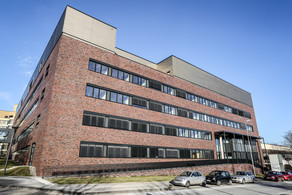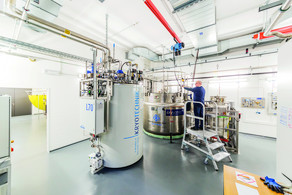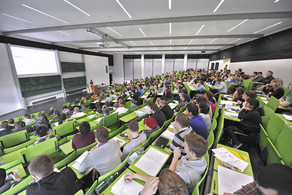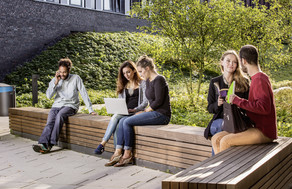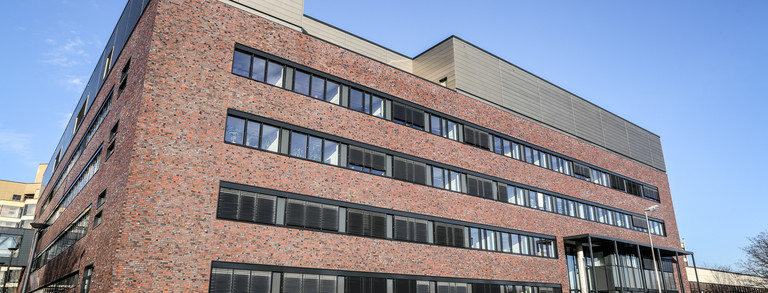Further € 4.3 Million for Research at CERN
- Research

Scientists from around the globe are working at the CERN research center in Switzerland, home to the world’s most powerful particle accelerator – the Large Hadron Collider (LHC). Around 50 physicists from TU Dortmund University are participating in two large-scale projects at the LHC and contributing to the parallel development of theoretical models. As of July, their work is being funded by the Federal Ministry of Education and Research (BMBF) with a further € 4.3 million for three years as part of ErUM-Pro project funding.
At CERN, international scientists are searching for particles to date unknown. In order to solve physics questions so far unanswered, they are also studying properties and interactions of already known elementary particles. In a ring-shaped underground tunnel about 27 kilometers long, packets of protons are accelerated to almost the speed of light and made to collide. Billions of elementary particles are created in the process. Gigantic detectors record their tracks, their energy, and their decay.
Physicists from TU Dortmund University are involved in work on two detectors: The teams led by Professor Johannes Albrecht and Professor Bernhard Spaan are conducting research on the Large Hadron Collider beauty experiment (LHCb). The focus here lies on precision measurements and the search for rare decays. The group led by Professor Kevin Kröninger is contributing to the ATLAS experiment. This is concerned with the search for so far unknown forces and elementary particles. Theoretical studies of the processes taking place in the particle accelerator are the responsibility of the working group led by Professor Gudrun Hiller. To interpret the data, theoretical models and analyses are required.
New LHCb detector
The work of the experimental particle physicists and TU Dortmund University necessitates regular on-site presence at CERN. These visits are funded by the Federal Ministry of Education and Research, among others. The ministry’s funding is, however, indispensable above all for the maintenance and operation as well as the upgrading and further development of the detectors. The LHC has been modified and overhauled in recent years, so that the accelerated protons now collide more violently than ever before. To be able to make the best possible use of the functionalities of the redesigned particle accelerator, the detectors also need to be upgraded. “We’re currently installing a new LHCb detector and have made an important contribution to the construction of the tracking detector in the framework of the funding provided by the Federal Ministry of Education and Research,” says Professor Johannes Albrecht. The LHCb upgrade is scheduled to go into operation in the spring of 2022. The next step will be to upgrade the ATLAS experiment. Here too, the scientists will benefit from the ministry’s funding.
Contact for further information:






